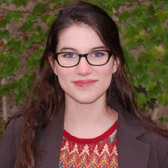Combatting Sexual Harassment and Assault in Schools
Esther Warkov, a Jewish enthnomusicologist, describes herself as a latecomer to activism. She is now the Executive Director and Co-Founder of Stop Sexual Assault in Schools, an organization that focuses on sexual harassment and assault in K-12 schools. Esther created the nonprofit after her own daughter was raped by a classmate on a Seattle public school field trip. After the school failed to respond appropriately, Esther discovered that all students in federally-funded education programs are protected from sex discrimination––which includes sexual harassment and assault–– by a federal civil rights law, Title IX, but that schools are rarely held accountable. While schools are responsible for creating an environment free from sex discrimination, the penalty for noncompliance—loss of federal funding—has never been applied, even though non-compliance leads to unsafe and inequitable learning environments. SSAIS believes communities must incentivize schools to protect students’ Title IX rights. The organization recently created a video, Sexual Harassment: Not in Our School!, which models how students can collaborate with their community to combat sexual harassment and assault. In addition to grassroots advocacy, SSAIS works at the national level to address the epidemic of K-12 sexual harassment and assault.
How have your lived experiences led you to feminist activism?
After our daughter was sexually assaulted, I found myself reliving my own experiences of sex discrimination and sexual harasment, which fueled my determination to act. Consider my generation. I graduated high school in 1969 at age 16, put myself through college, received a Fulbright to study in Britain, and then earned a PhD in Israel––all through my own efforts. To succed, one had to be bold––especially in the face of rampant sexual harassment––which included lecherous professors! Back in the 1970s, young women had no resources or support to deal with the constant barrage of harassment.

Founder and Executive Director of Stop Sexual Assault in Schools, Esther Warkov, conducting ethnomusicological research in Israel, 1981. Image courtesy of SSAIS.org/.
When I conducted research on Middle Eastern music, I was apparently the only female oud player in Israel. There, I worked almost exclusively with male Iraqi-Jewish and Arab musicians. No matter how modestly I dressed, men hit on me, and I was often unsafe. Such experiences proved foundational to my feminist education.
Like most parents, sexual harassment and assault at school weren’t on my radar when our daughter was raped in the Fall of 2012. The inequitable way the school treated her unleashed my moral outrage. I began by organizing demonstrations that led to extensive and ongoing media exposure.
Why is it that parents often fail to see that sexual harassment and assault are prevalent in their children’s schools?
Parents don’t hear about this epidemic because it’s underreported by students who believe that sexual harassment—and even forms of sexual assault—are normal and must be endured. When students do report assault or harassment, schools often focus on protecting their reputation; they downplay the report, blame the victim, or worse. Schools also fail to collect data as required. Few parents know that schools have a responsibility to address the impact of off-campus sexual harassment and assault on a student’s education.
Some parents acknowledge that sexual harassment and assault happen to other families’ kids but don’t understand why they are actually community problems. Since over half of middle and high school students experience sexual harassment, chances are their own child has already witnessed or experienced sexual harassment or assault, felt anxious or unsafe, or become party to the harassment.
Do you think it’s important to differentiate between sexual assault and sexual harassment?
Harassing behaviors exist along a continuum. Pervasive sexual harassment can be just as damaging as some forms of sexual assault. It’s important to educate students and schools about the many forms of sexual harassment and consider them all serious.
While it can be difficult to talk about sexual assault, most people are comfortable acknowledging that sexual harassment is a problem in the workplace. So we can open the conversation by talking about sexual harassment in school, the student workplace, and explain how it leads to sexual assault in K-12, college, and beyond.
What role has intergenerational activism played in the success of Stop Sexual Assault in Schools?
Intergenerational activism is key! To be successful we must listen carefully to each generation’s unique experience and insights. For example, as an older activist, I owe so much to teen activists like Minnah Stein, a JWA Rising Voice Fellow for 2017-18. At the same time, we benefit from our senior mentors with tremendous feminist advocacy experience, such as Dr. Sue Klein, Education Equity Director at the Feminist Majority Foundation, and the distinguished feminist lawyer Sonia Pressman Fuentes.
How have Judaism and your career in music informed your work?
My experience of Judaism compels me to stand up to injustice. Having lived through this nightmare to successfully hold a school district accountable, and having gained the skills to educate others, I feel a responsibility to tackle this emerging civil rights issue. For inspiration I turned to Viktor Frankl, who exhorted fellow Auschwitz prisoners to find meaning in suffering. Taking action provides my life with new meaning.
The great spiritual traditions tell us that the highest form of religious expression is serving humanity. I see advocacy work as an opportunity to practice selfless service. I strive to balance outward passion with internal dispassion. That means weathering challenges with equanimity, getting the ego out of the way, and being an instrument through which change can occur.
While my involvement with music may appear vastly different from fighting sexual violence, they are both activities that seek to elevate: as art can inspire a greater sense of connectedness, so can activism, particularly as we experience wholeness after trauma. If we stay focused on serving others, our work can have a spiritual quality while making tremendous impact.
For more information on SSAIS, visit their website. The first part of their comprehensive video on combatting sexual harassment and assault in schools is below.








Great article and insightful and created pause for reflection, this is the kind of reading one gains insight and strength from. The soul needs more of folks like Esther. Brave is the soul that is willing to discuss the distain and disgust in life. The conversation is painful yet needed and only when we discuss and expose the lies that we can step into the hope of change.
Thank you for sharing, Esther! This work is so important. We all need to speak more candidly like this to combat lingering myths about sexual assault, raise awareness of prevalence, and connect to reduce/prevent these types of assaults.
Fascinating and informative. Thank you Esther.